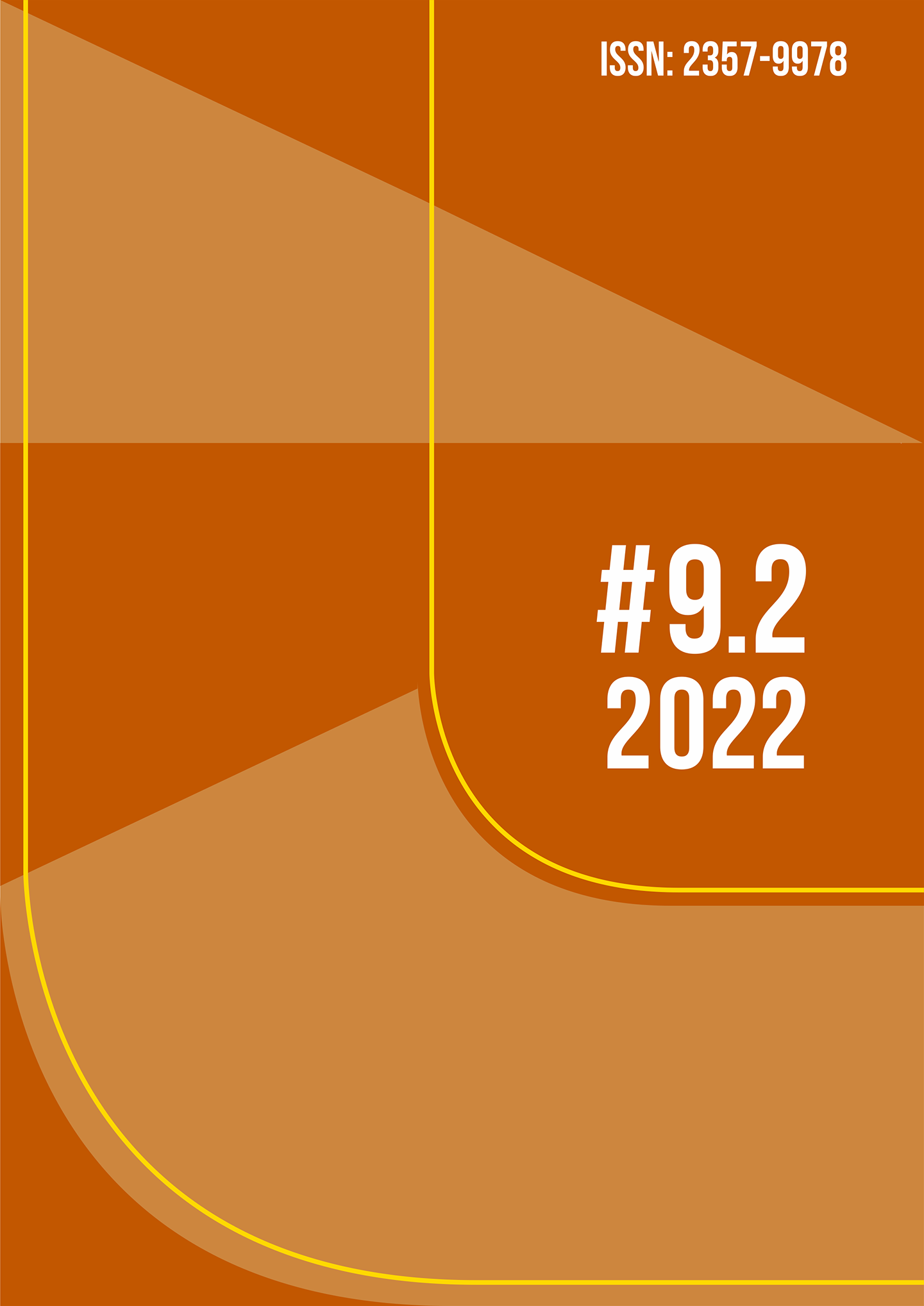Dances and Africanities: Anticolonial Challenges in Dance Postgraduate Education, Disobedient Paths to Insurgent Epistemologies and Aesthetics
DOI:
https://doi.org/10.36025/arj.v9i2.28911Keywords:
black dance, afro-indigenous, insurgence, coloniality of power, counter-dramaturgyAbstract
The academic model of teaching, research and learning in the arts, specifically in the field of dance, needs to be rethought within an anticolonial and Afro-Brazilian perspective. In this sense, the aim of this work is to establish emerging paths, epistemologies and intersecting aesthetics that are in the midst of a process of knowledge production/legitimization. The article discusses teaching and research experiences in the Dance and Africanities: Educational, poetic and political perspectives course component of the Dance Postgraduate Program at the Federal University of Bahia. It is based on questions of the South in order to "decolonize" academic writings and practices in dance research and to reconfigure research into actions against coloniality, racism, homophobia, transphobia and academic machismo.
Downloads
References
ALMEIDA, Silvio Luiz de. Racismo Estrutural. São Paulo: Sueli Carneiro; Pólen. 2019.
CARNEIRO, Sueli. Racismo, sexismo e desigualdades no Brasil. São Paulo: Selo Negro, 2011.
DICIONÁRIO On line de Português: p.1-4. Disponível em: https://www.dicio.com.br/insurgente/ Acesso em 09/04/22.
GLISSANT, Édouard. Poética da Relação. Rio de Janeiro: Bazar do Tempo, 2021.
GROTOWSKI, J. Exercícios. Trad. Berenice Raulino. In: O Teatro Laboratório de Jerzy Grotowski 1959-1969. São Paulo: Fondazione Pontedera Teatro/Edições SESCSP/Perspectiva, 2010.
HERCOLES, Rosa Maria. Formas de Comunicação do Corpo: novas cartas sobre a dança. 2005. 138 f. Dissertação (Mestrado em Comunicação e Semiótica). Pontifícia Universidade Católica, São Paulo, 2005.
JUNIOR, Vilson Caetano de Sousa. Na palma da minha mão: temas afro-brasileiros e questões contemporâneas. Salvador: EDUFBA, 2011.
KERKHOUVE, Marianne Van. Dossiê Dança e Dramaturgia. Contredanse. Trad. Cássia Navas. Bruxelas, p.18-25, 1997.
LEHMANN, Hans-Thies. Teatro pós-dramático. Trad. Pedro Sussekind. São Paulo: Cosacnaify, 2007.
MBEMBE, Achille. Crítica da Razão Negra. Trad. Sebastião Nascimento. São Paulo: n -1 Edições, 2018.
MARTINS, Leda Maria. Afrografias da memória: o reinado do Rosário no Jatobá́. São Paulo: Perspectiva, 1997.
MACHADO, Roberto. Introdução. In: FOUCAULT, Michel. Microfísica do Poder. Trad. Roberto Machado. Rio de Janeiro: Paz e Terra, 2014.
MONTEIRO, Mariana. Noverre: cartas sobre a dança. Trad. e notas da autora. São Paulo: EDUSP/FAPESP, 1998.
MUNANGA, Kabengele. Negritude: usos e sentidos. 3.ed.; 1. reimp. Belo Horizonte: Autêntica, 2020.
NASCIMENTO, Abdias. Os Orixás do Abdias: pinturas e poemas de Abdias do Nascimento. Rio de janeiro, Editora IPEAFRO, 2006.
OLIVEIRA, Eduardo David. Filosofia da Ancestralidade: Corpo e mito na Filosofia da Educação Brasileira. Curitiba: Editora Gráfica Popular, 2007,
PAVIS, Patrice. Dicionário de teatro. Trad. J. Guinsburg e Maria Lúcia Pereira. São Paulo: Perspectiva, 1999.
PAIXÃO, Maria de Lurdes Barros. Re-elaborações estéticas da dança negra brasileira na contemporaneidade: análise das diferenças e similitudes na concepção coreográfica do Balé Folclórico da Bahia e do Grupo Grial de Dança. 2009. 175p. Tese (Doutorado em Artes); Unicamp, Campinas, 2009.
QUIJANO, Aníbal. Colonialidad del saber: eucentrismo e ciências sociales, Perspectivas Latinoamericanas. Buenos Aires: CLACSO – Consejo Latinoamericano de Ciências Sociales, 2005.
SANTOS, Boaventura de Souza; MENESES, Margarida (org.). Epistemologias do Sul. Coimbra: Almedina, 2009.
SANTOS, Jadiel Ferreira. ÒKÒTÒ: dança desobediente afrocentrada, caminhos para a formação em dança no ensino superior sob os estudos das relações étnico-raciais brasileiras. 2018. 247p. Dissertação (Mestrado – Programa de Pós-Graduação em Dança). Escola de Dança da UFBA, Salvador, 2018.
SANTOS, Laudemir, P. A. (Lau Santos). A filosofia do malandro: estéticas de um corpo encantado pela desobediência. Revista da ABPN, v.12. n.31, 2020. Disponível em: https://www.abpnrevista.org.br/index.php/site/article/view/834. Acesso em: 02 fev. 2022.
SILVA, Cidinha da. Parem de nos Matar! São Paulo: Ijumaa, 2016.
SILVA, Dilma de Melo; CALAÇA, Maria Cecília Félix. Arte africana e afro-brasileira. São Paulo: Terceira Margem, 2006.
SILVA, Ana Célia da. Retrospectiva de uma trajetória de ações afirmativas precursoras à Lei 10.639/03. 2.ed. Salvador: Hetera, 2020
SIQUEIRA, Maria de Lourdes. Intelectualidade negra e pesquisa científica. Salvador: EDUFBA, 2006.
SILVA. Karine de Souza. Insurgências contra-coloniais e americanização da universidade. In: MORTARI, Claudia; WITTMANN, Luisa Tombini (org.). Narrativas insurgentes: colonizando conhecimentos e entrelaçando mundos. Florianópolis: Rocha Gráfica e Editora, 2020, 395p. Disponível em: https://ayalaboratorio.files.wordpress.com/2020/12/narrativas-insurgentes.pdf. Acesso em: 03 mar. 2021.
STALPEART, Christel. Dramaturgy in the Curriculum on Fluctuating Functions, Dramaturgy as Research, and the MacroDramaturgy of the social. Documenta: tijdschrift voor theater. v.35, p. 130-158, 2018. Disponível em: https://www.academia.edu/38491067/Dramaturgy_in_the_Curriculum_On_Fluctuating_Functions_Dramaturgy_as_Research_and_the_Macro_Dramaturgy_of_the_Socia. Acesso em: 18 mar. 2022.
TAVARES, Júlio. Dança de Guerra: arquivo e arma (elementos para uma teoria da capoeiragem e da comunicação corporal afro-brasileira). Belo Horizonte: Nandyala, 2013.
TRINDADE, Liana. COELHO, Lúcia. Exu: o homem e o mito. São Paulo: Terceira Margem, 2006.
Downloads
Published
Versions
- 01-12-2022 (2)
- 01-12-2022 (1)
How to Cite
Issue
Section
License
Copyright (c) 2022 Amélia Conrado, Lau Santos, Maria Paixão (Autor)

This work is licensed under a Creative Commons Attribution-NonCommercial-ShareAlike 4.0 International License.

This work is licensed under a Attribution-NonCommercial-ShareAlike 4.0 International (CC BY-NC-SA 4.0) License.
Authors retain copyright, while licensing their work under a Attribution-NonCommercial-ShareAlike 4.0 International (CC BY-NC-SA 4.0) License.


 English
English Português (Brasil)
Português (Brasil)
